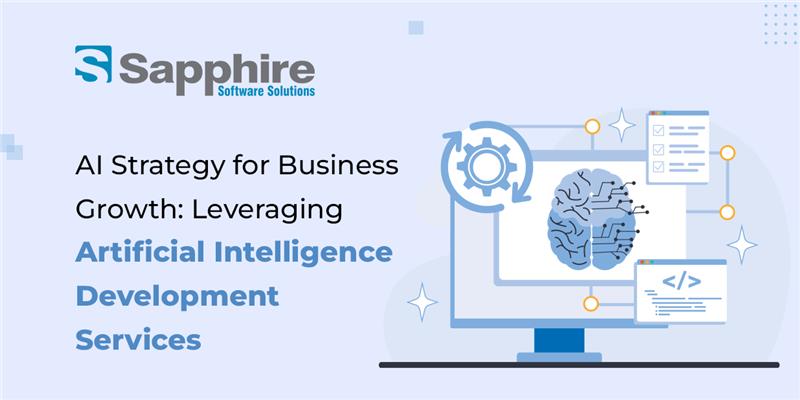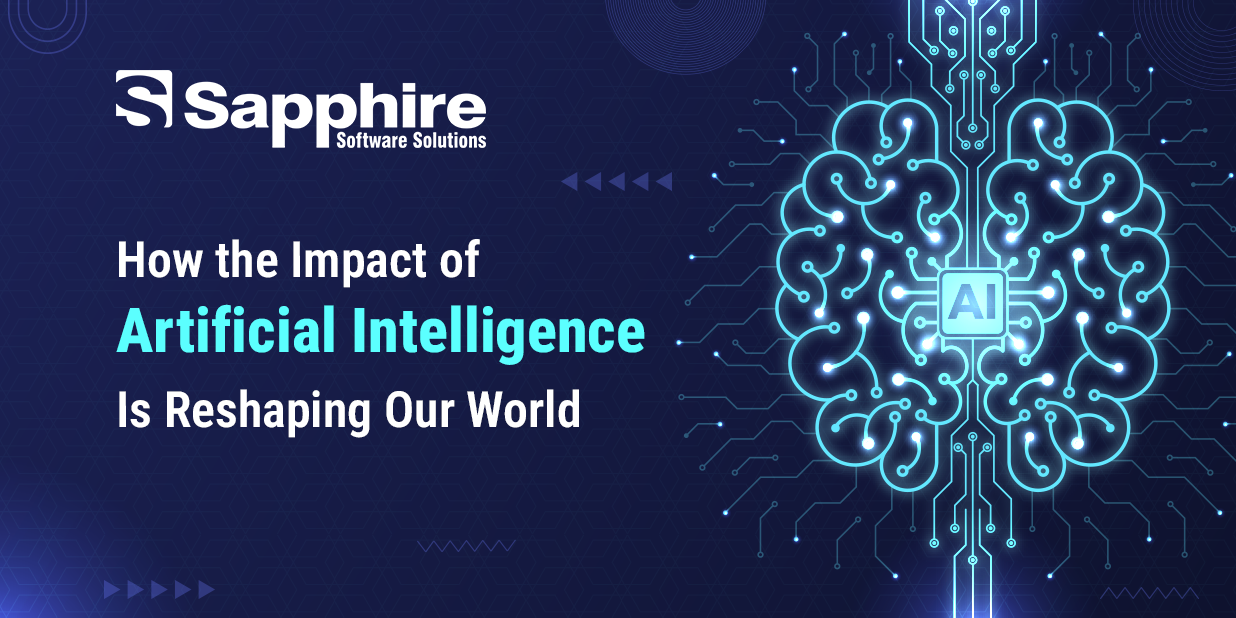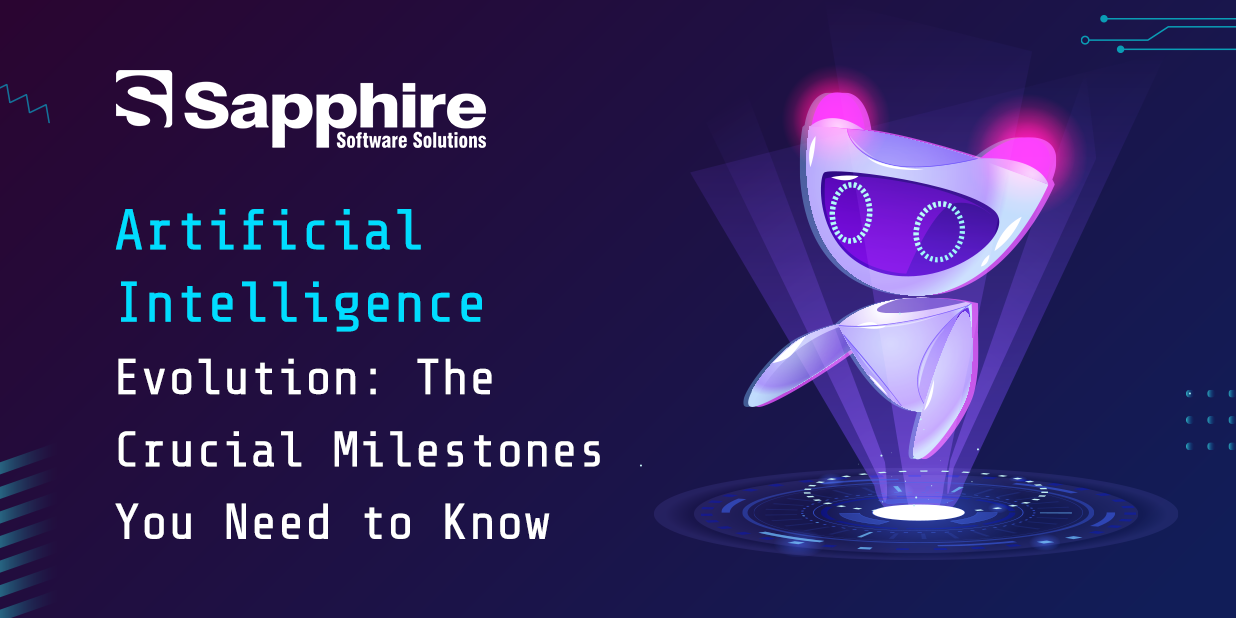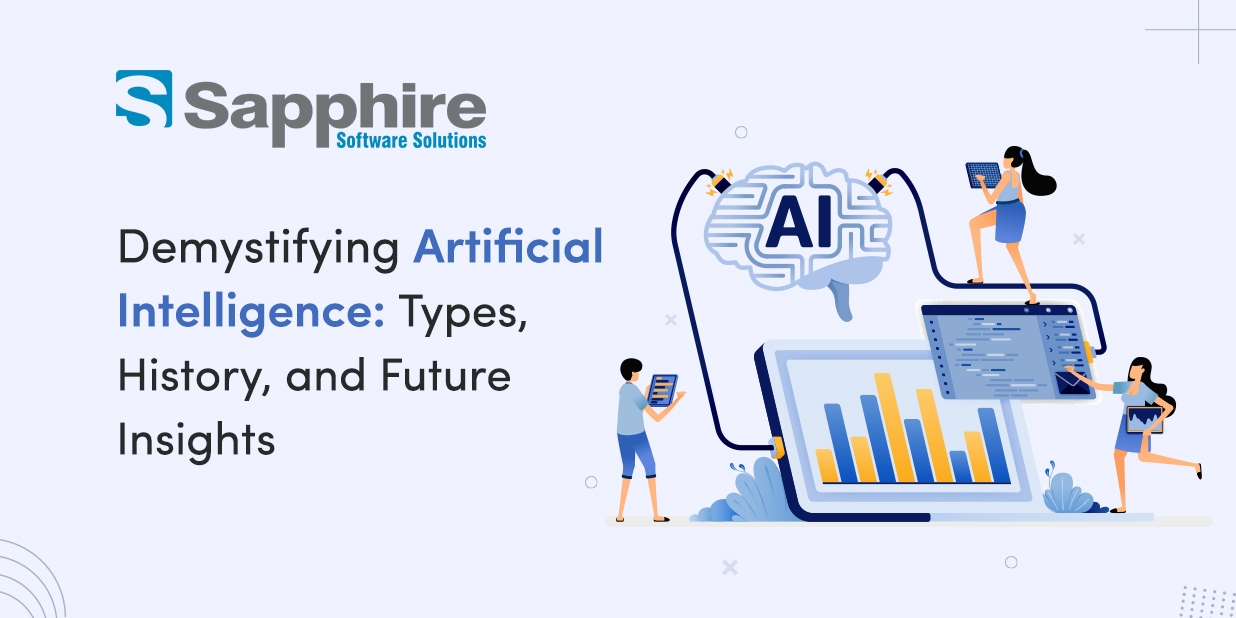Why AI is the Future of Business?
Artificial Intelligence (AI) is transforming sectors worldwide. It touches health, banking, shopping, and production, making things better with AI tools. They streamline work, escalate customer interaction, and heighten productivity.
It’s great at reading loads of information, guessing what’s coming, and doing jobs automatically. This has caused never-seen-before inventiveness, fueling a surge in business ideas for artificial intelligence for business growth has become a major player in nearly all fields. As sectors grow, companies leveraging an AI startup idea will pull ahead. They’ll fuel expansion and set the pace in a world powered by technology, where new AI startup ideas continue to shape the future.
Importance of Adopting AI for Future Competitiveness:
Embracing Artificial Intelligence Development Service allows businesses to create, smooth operations, and form choices based on data. AI enables firms to get ahead through the automation of regular duties, quick analysis of vast datasets, and the delivery of custom customer experiences.
Using AI Strategy in our quickly changing digital world speed ahead of others. They see trends before they happen, streamline their work, and cut down on expenses. The more businesses that use AI as part of their tech toolbox, the more they stay ahead, creative, and in the game for the long run.
The Rise of AIaaS: Best Artificial Intelligence as a Service Providers
The advent of AIaaS (Artificial Intelligence as a Service) has transformed the implementation of AI technology in companies. Through AIaaS, no investment is made in infrastructure or in acquiring certain skills in order to add artificial intelligence to operations. This transformation opens the door for any company—big or small—to access the power of AI—be it for data analysis, machine learning, or natural language processing—without the expensive cost of learning. With AIaaS platforms, you can use the most advanced AI solutions on a pay-as-you-go basis, and scaling their business is more efficient and remaining competitive is simpler.
Google Cloud AI, IBM Watson, and Microsoft Azure AI are the leaders who possess strong, adaptable AI products to be used across industries. Google Cloud AI is particularly strong in machine learning and analytics, while IBM Watson’s product line of AI offers strong natural language processing with decision-making capabilities. As technology continues to evolve with the use of AI, AIaaS providers will also be broadening their services in a way that businesses can benefit from the energy of AI in a simple yet effective manner without necessarily spending beaucoup bucks to access this. Small or big-time companies, you might need to integrate AIaaS into your system in order to remain competitive faced with a constantly AI-dominated universe.
AI and Its Applications in Various Business Sectors:-
Step 1: Understanding Potential of AI Business Transformation
How AI Revolutionizes Traditional Business Models?
AI is making huge changes, especially in healthcare, retail, and finance. In healthcare, AI uses patient information to tailor individual treatment plans—one of the many business ideas for artificial intelligence transforming the industry. Retail businesses use AI to control inventory and make marketing personal, while those in finance use AI to spot fraud and manage risk. This AI business idea speeds up processes and improves decisions, boosting how customers feel and how companies work.
Evaluating AI’s ROI for Your Business
AI makes a big difference in business! It helps in several ways that can boost profits. Think about these two examples – improving how customer service works and making supply chains work better. Retail stores rely on AI to predict what customers will want. This helps them cut down on expenses for holding stock. Past examples prove that using AI can be worth it. It promotes smooth operations, happier customers, and higher earnings.
Step 2: Preparing Your Business for AI Implementation
Assessing Your Company’s AI Readiness
Before diving into AI, it’s crucial to gauge how prepared your business is for AI. This means checking out your data framework, understanding AI, and willingness to embrace tech modifications. Often stumbling blocks introducing AI, like data flaws and pushback from the team, can be tackled with the right strategy.
Building a Solid AI Strategy
Business objectives should complement AI plans. Especially in major areas like reaching out to customers or making operational tasks more effective. Choosing AI agendas by their practicality and anticipating their payback guarantees smart use of resources. This offers a solid base for achievement in the long run.
Step 3: Data as the Foundation for AI
Why Data is Critical to AI Success?
Good data sits at the heart of AI technology. It’s what machine learning systems depend on. The mix of right and varied data helps them make sense of things. Decisions based on this kind of data lead to smart, exact choices. This removes the need to guess and boosts performance instantly.
Building an AI-Ready Data Infrastructure
Companies should build strong data systems to back AI projects. This involves gathering, storing, and managing data to make it available and usable. Services like cloud storage and data analytic platforms aid in handling AI examination, paving the way for successful AI rollouts.
Step 4: Choosing the Right AI Tools and Technologies
Top AI Tools Every Business Should Know
Loads of AI platforms exist, each suited for different business tasks. TensorFlow, IBM Watson, and Google AI shine with flexible, potent features. Companies pick pre-made AI solutions or custom AI tools, based on their unique needs.
How to Choose the Best AI Solution for Your Business?
Consider a few things when choosing AI equipment. Think about industry requirements, company size, or how scalable it is. Some firms might like a custom AI build, offering personalized answers.
Step 5: Hiring and Building an AI-Driven Team
Skills Your Team Needs to Implement AI Successfully
For AI adoption, companies require a capable team knowledgeable in data analysis, machine learning, and AI morality. Firms must choose: to recruit AI specialists or train current employees. This ensures the effective absorption of AI tech.
Creating a Collaborative AI Culture
AI works best when all sections use it. Teamwork between AI experts and other workers aids in everyone embracing and using AI. This change in work style helps make sure AI knowledge is put to good use in making choices.
Step 6: Integrating AI into Business Operations
Streamlining Operations with AI Automation
AI helps make things run smoothly by taking care of the same tasks over and over. This increases effectiveness in things like supplying goods, handling cargo, and helping customers. To give you an idea, AI can use data to make sure there is just the right amount of stock. This way, there’s no wasted space or need for rush orders, so businesses save money.
AI-Powered Customer Service: How to Implement It Effectively
Chatbots and virtual assistants, powered by AI Chatbots, have reinvented customer service with round-the-clock help and tailored conversations. For routine inquiries, industries such as banking and online shopping now use AI customer service. This leaves human employees free to tackle the trickier problems.
Step 7: Measuring AI’s Impact on Your Business
Key Metrics to Evaluate the Success of AI Initiatives
When looking at how well AI projects are doing, we watch cost cuts, more earnings, and happy customers. We also look at how well AI-focused tasks are doing. For instance, how correct is the AI to guess? How fast are tasks getting done automatically?
Continuous Improvement: Refining Your AI Approach Over Time
Putting AI into use is like a cycle that keeps going. It needs ongoing adjustments. Businesses can make AI work better over time by using Generative AI Development Services enjoy long-term positives and meet their changing needs.
Conclusion: Why Businesses Can’t Afford to Ignore AI
It’s clear. Businesses need AI to stay in the game. It’s not just a cool tool. It’s a change-maker. AI can make businesses run better, decisions smarter, and layoffs. The future’s looking bright with AI. Businesses can start getting ready. They need a good plan, great data, and the right AI gadgets for the best results.






































